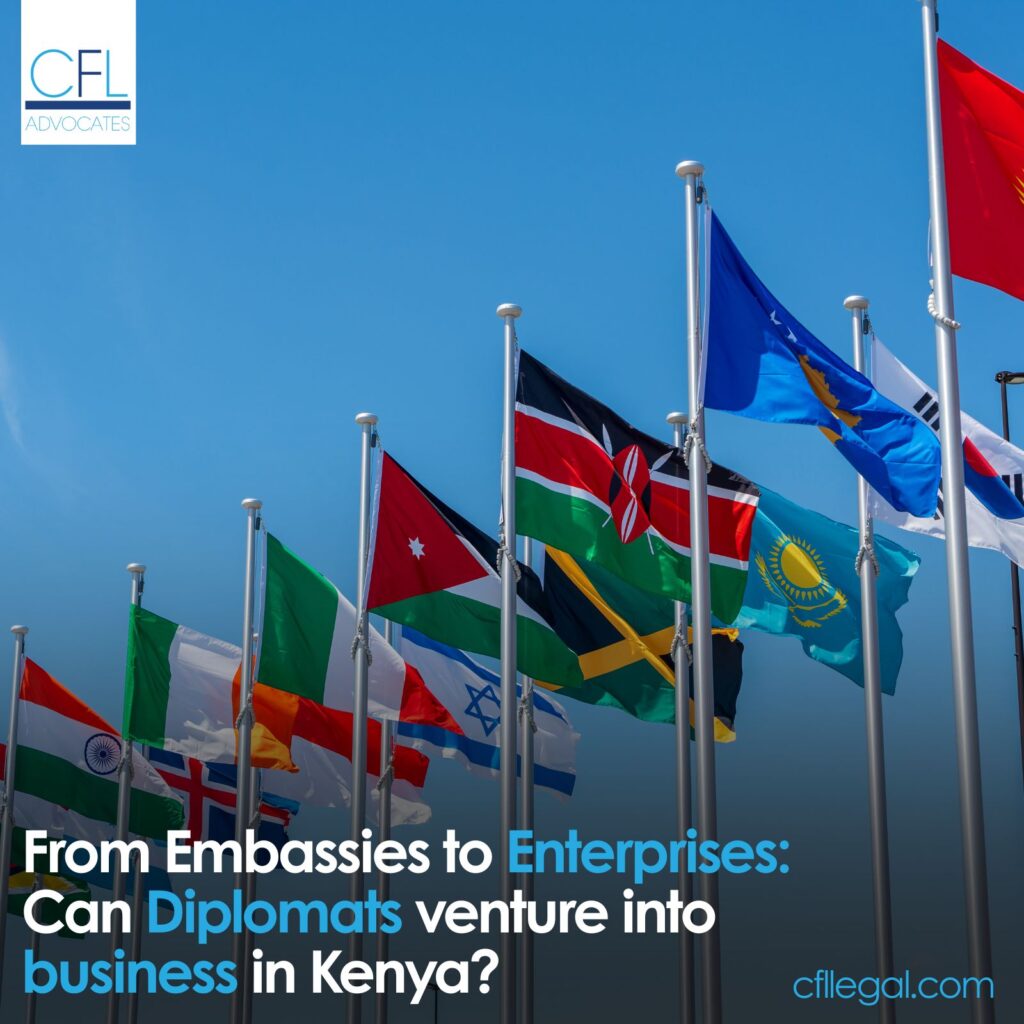
The short answer: Yes, but with important limits.
The idea of a diplomat stepping beyond embassy walls to explore business opportunities in Kenya often raises eyebrows, is it even allowed? The answer lies at the intersection of international conventions and local law. Under the Vienna Convention on Diplomatic Relations (1961), the Vienna Convention on Consular Relations (1963) and Kenya’s Privileges and Immunities Act (Chapter 179, Laws of Kenya), diplomats may in fact pursue private ventures in the host state. However, they may only do so outside the scope of their official duties and once they cross that line, they become subject to Kenyan law and the jurisdiction of its courts.
Limits on diplomatic immunity
Article 31(1) of the Vienna Convention on Diplomatic Relations, 1961, provides that while diplomatic agents enjoy absolute immunity from the criminal jurisdiction of the receiving state, they are not exempt from its civil and administrative jurisdiction in certain instances, including the following:
- A real action relating to private immovable property situated in the territory of the receiving State, unless he holds it on behalf of the sending State for the purposes of the mission;
- An action relating to succession in which the diplomatic agent is involved as executor, administrator, heir or legatee as a private person and not on behalf of the sending State;
- An action relating to any professional or commercial activity exercised by the diplomatic agent in the receiving State outside his official functions.
Relinquishing privileged status
While diplomats are not expressly barred from engaging in private business or other gainful ventures in the host state, such activities are subject to the applicable legal framework. To do so lawfully, diplomatic personnel are generally required to relinquish their diplomatic or privileged status in order to obtain the necessary work permits, passes or licenses to operate a business within Kenya.
Conclusion
Diplomatic status may open many doors, but it does not grant a blank cheque to do business in Kenya. While diplomats and their families can, in principle, pursue private ventures, they must do so within the confines of international conventions and the Kenyan law. Failure to follow the proper channels could expose them to civil or criminal liability, the possibility of withdrawal of accreditation by the host state or even escalation into a diplomatic dispute.
The key takeaway? Understand your privileges, respect their limits and, where necessary, relinquish immunity to comply with local business regulations. Only then can diplomatic personnel safely and legally transform opportunities in Kenya into successful enterprises.


